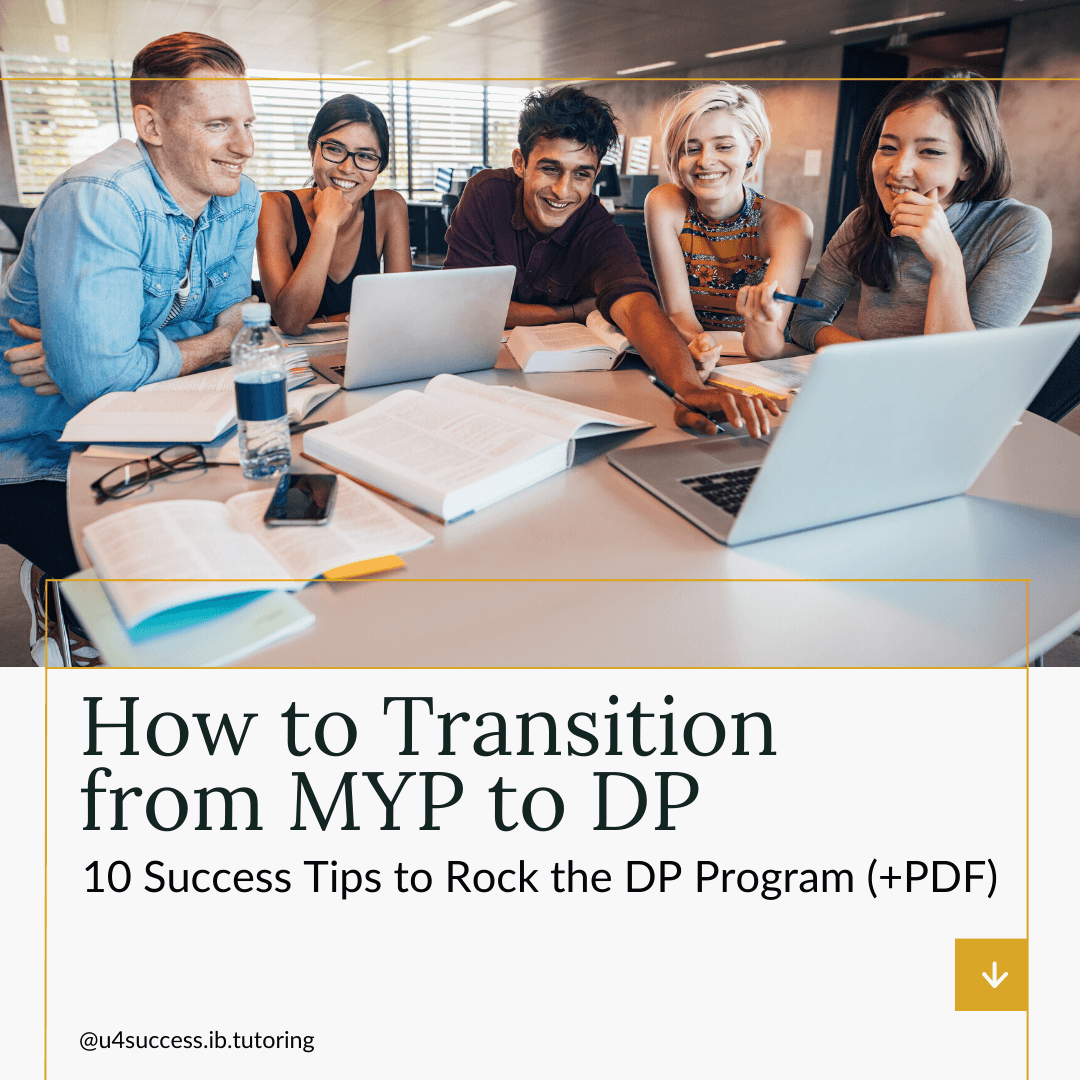How to Transition from MYP to DP: 10 Success Tips to Rock the DP Program
Written by Manel Lando
As an IB student, you’ve likely heard about the scary but exciting transition from the Middle Years Programme (MYP) to the Diploma Programme (DP). This transition will be a significant step in your academic life, which comes with its own set of challenges and opportunities. In this post, we’ll explore what you can expect when starting the DP program, the key differences with MYP, and how to successfully transition from MYP to DP IB programs.
Table of Contents
- Main differences between MYP and DP IB Programs
- Academic Depth and Specialization
- DP Core: Increased Emphasis on Research and Critical Thinking
- DP Core: Creativity, Activity, Service (CAS)
- Assessment Methods in DP Program
- Time Management and Independence
- 10 Success Tips to Rock the DP Program

Academic Depth and Specialization
One of the most noticeable changes you will find when you move from MYP to DP is the increased academic depth and specialization. While in the MYP, you’ve been exposed to a wide range of subjects, allowing you to explore different areas of interest, in the DP, you will be required to choose specific subjects to study in-depth for the next two years.
Typically, you’ll choose six subjects in the DP, with three at a Higher Level (HL) and three at a Standard Level (SL). But if you like a challenge, you can also choose four HL subjects!;) The HL subjects will, of course, go deeper into their respective areas and demand a higher level of rigor and a higher workload. To compare, an HL course requires 240 hour of teaching during the the two IB DP years, while an SL course requires 150 hours.
Such specialization during the IB DP program enables you to focus on subjects that align with your academic and career goals or passions, allowing you to develop expertise and excel in your chosen fields. Great preparation for the real world, so to say!
The six subjects you choose are each going to be part of one of the six major subject groups:
- Studies in language and literature
- Language acquisition
- Individuals and societies
- Sciences
- Mathematics
- Arts
Each subject group includes different specialized subjects that allow you to choose those you´re most interested in. If you want to specialize even more, you will be able to replace the Arts subjects with a subject from one of the other groups. It all depends on what you´re interested in! For more information about the IB DP curriculum and the DP courses, you can consult the IB website and your school.
What choosing the right IB DP courses means for your university aspirations
Although the IB DP curriculum allows you to pursue those subjects you are more interested in, choosing your DP courses is not only about that. Before choosing, you should consider very well which studies you would like to pursue in the future, and to which universities and programmes you would like to apply. That´s because every university and program has its own specific admission requirements. In the case of IB students, requirements normally include a minimum IB score and having studied specific subjects. In some cases, you will be required a high score in a particular HL subject. For example, if you want to study Physics at Oxford University, you will need an IB score of 39 (including core points) with a 7 in Physics or Mathematics and two 6s in other two HL courses.
Although these requirements will define in part which subjects you will choose, there will still be some flexibility to pursue the things you prefer. Plus, if you see that something is not working out, you can always change. In case of doubt, your school can give you more information on the different courses, as well as advice about which courses better fit your career and univeristy goals.
DP Core: Increased Emphasis on Research and Critical Thinking
While the MYP curriculum introduces you to the fundamentals of research and critical thinking, the DP takes these skills to the next level!
As part of your DP curriculum, you will have to write the Extended Essay (EE), a 4,000-word independent research project that involves selecting a research question, conducting thorough research, and presenting your findings in a structured essay format. The EE will challenge you to think critically, analyze information, and engage in scholarly writing, which will be crucial skills for your future academic and professional success.
Additionally, the DP includes the Theory of Knowledge (TOK) course. TOK will encourage you to explore the nature of knowledge, different ways of knowing, and the role of evidence and reason in acquiring knowledge. This will give you a deeper appreciation for critical thinking and encourage you to question assumptions, biases, and the reliability of sources, which is a valuable skill in today’s information-driven world.
As part of the TOK course, you will have to write a TOK essay, in which you will reflect on a specific question concerning the topics you learned about, as well as critically analyze and evaluate different areas of knowledge. For more details about what TOK is, how it works and how to write it, as well as TOK title ideas, you can consult our extended collection of TOK articles.
DP Core: Creativity, Activity, Service (CAS)
The DP curriculum places a strong emphasis on holistic development through its Creativity, Activity, and Service (CAS) program. CAS encourages you to participate in a wide range of extracurricular and community service activities, fostering personal growth, leadership, and a sense of responsibility towards your community. Engaging in CAS activities ensures that you continue to develop skills beyond the classroom and become a well-rounded individual.
To complete the CAS, you will need to engage in a series of activities and at least one project. Activities can fall within any of the three branches of the CAS, that is: Creativity, Activity and Service. However, you will not be prescribed any activities, but will rather have to initiate them yourself. Your school will then suggest particular projects inside those activities. As an example, if you play an instrument (activity), your project could be learning to play a particularly difficult piece.
Participating in all these activities will help you get more involved with your community and develop extra skills and competences, which will complete the personal growth expected of you during the DP program. And most importantly, it can help you with university admissions! For example, in the US, extracuricular activities bear a big weight in the admission process and having an outstanding portfolio will make you a very competitive candidate!
Assessment Methods in DP Program
Assessment methods in the DP are quite different from those in the MYP. While the MYP relies heavily on continuous assessment through coursework, the DP places greater weight on final examinations. These examinations are externally moderated, which means that the exams and their scoring are standardized for all IB students. These examinations will have a substantial impact on your final DP score. Consequently, the transition to DP will mean an increased workload and a greater focus on preparing for exams.
The external assessments include:
- essays (Extended Essay)
- structured problems
- short-response questions
- data-response questions
- text-response questions
- case-study questions
- multiple-choice questions´ usually papaper 1 on IB exams.
Apart from external examinations, the DP’s assessment also includes teacher assessed coursework, more specifically internal assessments. Internal assessments are individual research/investigation work conducted for every subject and accounting for 20% of the final grade for that subject.
The internal assessments include:
- oral work in languages
- fieldwork in geography
- laboratory work in the sciences
- investigations in mathematics
- artistic performances.
10 Success Tips to Rock the DP Program
1.Plan for the Future
One of the biggest challenges of the MYP to DP transition is planning for the future. You’ll need to select your DP courses and create a well-balanced schedule. But how to do it right? Think about what you’re good at, what you love, and where you want to be. Pick subjects that feel right for you and that you think you will want to stick to in the future too. It’s like setting up your own playlist, make sure it’s all tunes you love.
2. Befriend your College Counselor
Think of these folks as your inside scoop on the IB world. They’ll help you pick the right courses and give you tips on what might be best for you. It’s like having a personalized guide for the IB journey. Moreover, these counselors can advise on subject choices that best resonate with your strengths and aspirations, so you don’t have to despair alone.
3. Know the Curriculum
Dive deep into what IB’s all about. Your curriculum is your roadmap, helping you progress systematically and successfully towards achieving your diploma. The more you know, the better you can plan. Think of it as getting a cheat sheet for the game, it’ll help you play it right.
4. Own Your Learning
Own it! Dive into topics, ask all the questions, and discover stuff on your own. It’s your education, you are responsible for your future, so rock it your way!
5. Seek Help When Needed
No student is an island. At times, complexities arise, and there’s no shame in reaching out. Whether it’s teachers, classmates, or specialized tutors, a myriad of support networks exist. Using available resources like textbooks or online materials can make the difference between understanding and confusion. There’s always a way, and there’s no shame in getting a little boost now and then – you are the boss of your learning!
6. Start Tasks Early
Procrastination is our enemy. Combat it by initiating tasks as soon as they’re assigned. Not only will you avoid last-minute stress, but you will also have enough room for planning, consultation, and revisions with your teachers and peers. In essence, an early start equals enhanced productivity and reduced stress. Plus, you get to chill later when everyone else is stressing.
7. Set SMART Goals
Within the vast IB landscape, clear, actionable goals can be lighthouses. Adopting the SMART (Specific, Measurable, Achievable, Relevant, Time-bound) criterion can break mammoth objectives into bite-sized, attainable tasks. And as milestones are achieved, you get a tangible sense of accomplishment. Think of it as leveling up in a game. Each level you pass gets you closer to being the champ.
8. Use all Available Resources
These days you have access to all kinds of helpful resources. Textbooks, online platforms, online classes, online tutors and invaluable teacher insights can substantially help you with your studies. Create a folder on your phone and bookmark all the cool sites and helpful information you find!
9. Maintain Life-School Balance
While academics are important, personal well-being is equally, if not more, essential. A balanced life is one where studies are combined with personal passions, hobbies, and relationships´ acts as a protection against burnouts and mental fatigue. All in all, remember to chill. Study hard, but also hang out with friends, play games, or binge on your favourite TV shows.
10. Master Managebac
Your Managebac will be your everything. It tracks your work, grades, homework, teachers feedbacks, CAS reflections and more. You should know how it works and be wary of its occasional pitfalls.
BONUS TIP: Keep Your Cool
- You will get frustrated! Not every test or project will be a win, and that’s okay. Keep pushing. One bad grade isn’t the end. Plus, there´s always a way to power up and bounce back.
- Persistence and consistent effort, especially during DP1, can remedy early slip-ups.
- And remember, the end goal is not just grades, but the total learning experience and the doors it opens for higher education.
Remember, the IB journey is as much about the academic rigor as it is about personal growth and resilience. Embrace the challenges, celebrate the achievements, and always seek to learn and grow.
Get IB updates in your inbox

About the Author
Manel is a scientist with PhD in Gene Editing who also tutors Science and Math at U4Success. He is passionate about sharing the skills he acquired during his life in academia and he hopes that more students can benefit from his experience.
